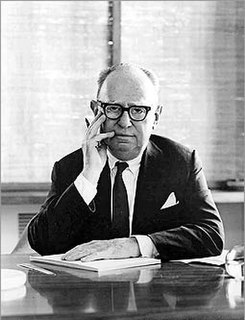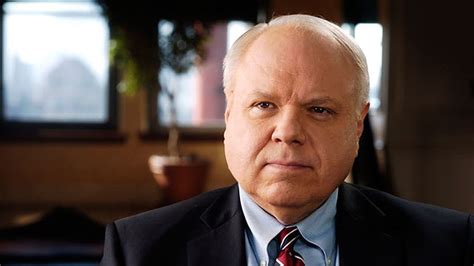A Quote by Gregory Benford
Experience shows that if you put more ethicists on a problem, you can end up with more problems.
Related Quotes
Cities are never random. No matter how chaotic they might seem, everything about them grows out of a need to solve a problem. In fact, a city is nothing more than a solution to a problem, that in turn creates more problems that need more solutions, until towers rise, roads widen, bridges are built, and millions of people are caught up in a mad race to feed the problem-solving, problem-creating frenzy.
We are more than our problems. Even if our problem is our own behavior, the problem is not who we are-it's what we did. It's okay to have problems. It's okay to talk about problems-at appropriate times, and with safe people. It's okay to solve problems. And we're okay, even when we have, or someone we love has a problem. We don't have to forfeit our personal power or our self-esteem. We have solved exactly the problems we've needed to solve to become who we are.
The most dangerous thing that can happen to us, I think, is to permit a feeling to develop that any client is a problem. I have always taken the attitude that no account is a 'problem account' but that all accounts have important problems attached to them - that you can waste more time and burn up more nervous energy by fighting a problem than by taking a positive attitude and solving it. It sure gives you a nice, warm glow when you do.
No more painters, no more scribblers, no more musicians, no more sculptors, no more religions, no more royalists, no more radicals, no more imperialists, no more anarchists, no more socialists, no more communists, no more proletariat, no more democrats, no more republicans, no more bourgeois, no more aristocrats, no more arms, no more police, no more nations, an end at last to all this stupidity, nothing left, nothing at all, nothing, nothing.
When you write a show, you just never know if it will have a future or if the show will end up ever having a production, but, that doesn't mean that the songs - the best of the best songs - can't be pulled out and put on a CD. And, if the shows that they come from end up happening, then people will regard this as like a quirky little concept recording. And, if the shows don't end up happening, at least the songs will live on in some capacity.
The more people that understand and are made able to spot liberalism, and then the more people are able to associate liberalism with the problems in their lives, the political problems, the economic problems, the more people can be conditioned and educated to understand that liberalism is the problem, coupled with the ability to spot it, would be the fastest way to eradicate it. It would be really helpful if we had a Republican Party engaged in this.
The growing inequality of wealth and income distribution is both a moral and economic problem. If the wealthy are unwilling to pay more taxes, then this is going to lead to spending cuts. And if you put off the table things like national defense, then you're going to end up cutting more and more out of programs that aid the poor. So, I think there are consequences to this idea that tolerance for inequality requires us to - to just do nothing to make the wealthy contribute a higher share of resources to fund the government.
I came up with this idea to create an app. And the premise of the app is this: every problem in the bar business goes away when there's sales. You increase revenue and you solve every problem. It's when the revenues are low that [the business] doesn't work. So I wanted to put together an app that focused on top-line revenue, guest experience, and business management in a more organized way.
You've got problems in Central Asia. And you've got problems within our own communities back home. So if we end up saying, look, this has nothing to do with Islam or it's got no connection with that broader question, then we look, frankly, as if we're in denial about the problem. And the interesting thing in the Middle East is that they have absolutely no problem there in identifying that as Islamist extremism and calling it that.
So, you've got a problem? That's good! Why? Because repeated victories over your problems are the rungs on your ladder of success. With each victory, you grow in wisdom, stature and experience. You become a better, bigger, more successful person each time you meet a problem and tackle and conquer it with a positive mental attitude.





































